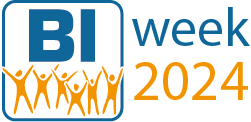Show Me What You Can (for Modelling)
Business Informatics Week 2024
1. Scope of the Track
Modelling tools play a critical role in the practice of enterprise modelling. The tools bring our modelling languages and techniques to life and provide the interface to modellers using these languages and techniques. As such, enterprise modelling research is historically interested in and engaged with the ideation and development of novel tools. Likewise, the tool vendor market is heavily interested in the newest scientific achievements and how to incorporate them into their tooling environments.
The aim of this track is thus to bridge the gap between modelling tool research and the practice of enterprise modelling tooling experienced by practitioners and tool vendors. Within this track, we invite both parties to present innovative and/or recently developed modelling tools and tool development platforms that can help or have helped solving scientific challenges.
In the scientific realm, tools are often developed by Master’s or Ph.D. students who create software artifacts to proof a hypothesis of their research or to show the feasibility of an innovative idea. In the industrial realm, tool vendors develop, maintain, and extend professional and mature tools, which are used by hundreds of thousands of customers. By bringing together the innovation coming from research with the experience from modelling practice on an industrial scale, the modelling tool track aims to foster networking, knowledge exchange, and initiate fruitful collaborations. Tools that are particularly relevant for this track can be recognized by one or more of the following points and also involved a scientific research question:
- Implement new interfaces for modelling tools (e.g. tangible user interfaces, VR environments, web modelling tools, mobile interfaces)
- Support collaborative (inter-organisational) modelling
- Offer novel forms of modelling support
- Are developed or offered with new technologies
- Technically implement new modelling methods
- Support modeller-specific functionality
- Enable their use in university teaching for standards such as ArchiMate, BPMN, ER, and UML
When you are convinced that your tool could support a scientific research question, but you did not do that yet, we can provide questions that still need tool support. Using these examples you can present how you could support science with that tool. In order to make the session interesting for academics, practitioners and tool vendors, we would like the tools to be presented in the context of the research question(s) they help solving. For tool vendors: if you are not sure about which research question your tool helps solving, please contact the track chairs and we will work with you on this.
2. Submission Format
The modelling tool track at BI-week’24 invites two forms of submissions which are offered to academic and industrial audiences, respectively. Papers of both categories should elaborate on the possibilities of the BI-week, EDOC, or CBI community to use the tool for practice, teaching, and research purposes.
2.1 Academic Paper Submissions
Academic paper submissions should contain a description of the tool and should have a length between five and eight pages (all-inclusive). Papers in this category should provide a short summary of the contribution that focuses on the innovative and novel aspects that advance the state of the art in existing tools. The papers should further describe the development of the tool (e.g., technical architecture, development platforms used, etc.) and shall describe the core functionality offered by the tool. If applicable, evaluation results can also be included to show the maturity of the tool. When the tool is developed in context of research, the tool shall be made available to the reviewers/readers either by means of a link to an open-source repository. Each submission shall contain a link to a short video showcasing the tool in use.
The academic tool papers can be submitted to a dedicated track of the EDOC 2024 EasyChair installation.
2.2 Tool Vendor Submissions
Tool vendor papers offer tool vendors a lightweight way to showcase their novel modelling tool developments to an academic community and to engage in interactive discussions. Tool vendors are invited to send an email to the track chairs with a brief description of their tool that focuses on the core functionality offered, the technology used, and the possibilities of using the tool in practice, teaching, and at least the (to be) supported research.
The email shall be directed to: MarkMulder@teec2.nl and l.o.boninodasilvasantos@utwente.nl with the subject ‘BI-week 2024 Tool Vendor Submission’.
3. Proceedings
Accepted academic papers will be published together with the workshop papers in a joint CEUR proceedings. Accepted tool vendors will be listed on the BI-week’24 conference webpage and a link to the tool will be provided.
4. Presentation
The tools will be presented and demonstrated as part of the main program of BI-week 2024. The detailed concept for the tool presentation will be aligned with the BI-week organisers once the number of submissions is clear. However, we aim to provide a forum where both academic as well as industrial tools are presented and discussed. Moreover, we aim to establish means to foster the initialisation of collaboration between tool vendors on the one side and researchers on the other.
5. Important dates
Submission deadline: July 24, 2024
Paper Notification: July 31, 2024
